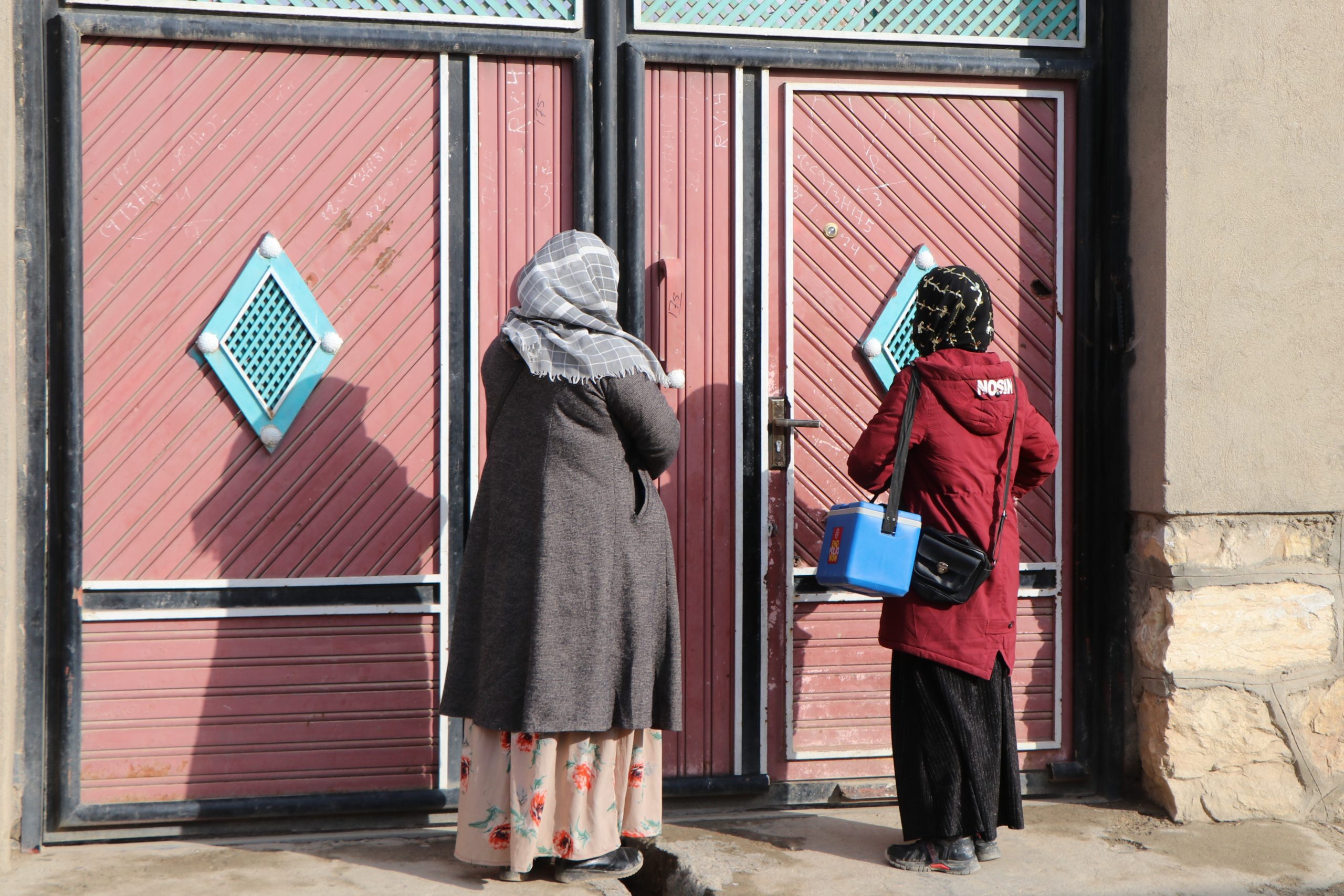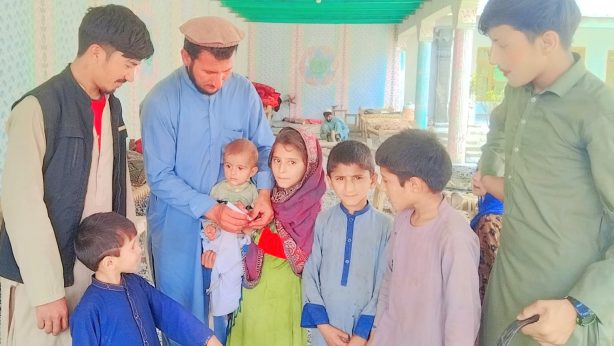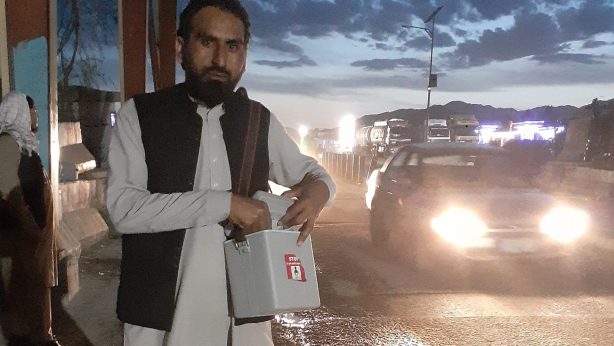The efforts of “Rahmana Hosseini” in the fight against polio

Rahmanullah Marjankhil
Ghazni, Afghanistan – “If even a child in my area gets infected with polio, then as a human being, I consider myself responsible.”
These are the words of 28-year-old Rahmana Hosseini, a resident of Ghazni city, who has devoted most of her life to the service of humanity.
Wearing a gray hijab and a black mask, she, along with her younger brother and another colleague, walks from street to street in the Pashtun Abad and Qala-e-Naw areas of Ghazni city, searching for families who have been exposed to misinformation about the polio vaccine and do not vaccinate their children.
She educates these families on the value of polio vaccination and encourages them to vaccinate their children to protect them from the deadly and paralyzing disease of polio.
Rahmana Hussaini, the eldest sibling among her two sisters and two brothers, mentions that she has completed her education up to the semi-high level and has graduated from midwifery.
According to her, she had the opportunity to work as a midwife, but she valued her current role as a social mobilizer in the field of polio eradication more. She has been dedicated to this job for the past three months.
 Rahmana Hussaini goes from house to house in Pashtunabad and Qala-e-Naw areas of Ghazni City and encourages families to vaccinate their children against this deadly and paralyzing disease. © Polio-free Afghanistan/2024/ Rahmatullah Marjankhil
Rahmana Hussaini goes from house to house in Pashtunabad and Qala-e-Naw areas of Ghazni City and encourages families to vaccinate their children against this deadly and paralyzing disease. © Polio-free Afghanistan/2024/ Rahmatullah Marjankhil
She says, “I am proud to work as a polio social mobilizer, and I see within myself the ability to convince numerous families that the polio vaccine is beneficial and healthy for the future of their children.”
According to her, during this period, she has successfully persuaded 15 families to agree to vaccinate their children, overcoming their previous hesitancy due to misinformation and a lack of understanding.
In this regard, Husseini mentioned a family that had recently relocated from Kandahar to Ghazni. They believed the polio vaccine to be harmful and had not vaccinated their children for years.
She said, “This family had refused vaccination many times, telling vaccinators that they did not want to vaccinate their children. Then I went to this house with my colleague for two days. We talked a lot with the elders of the family, explained the benefits of the polio vaccine to them, and finally convinced them to vaccinate their children.”
She says that in order to convince refusing families to vaccinate their children, she uses different techniques. First, she explains to families the benefits of vaccination and the dangers of polio, as many families do not have accurate information about the vaccine or have been exposed to misinformation or rumors about it.
Hussaini mentions that, despite encountering challenging behavior from some families in her work, she also feels content when families who initially refused vaccination agree to vaccinate their children.
She says that she considers it her duty to make efforts for the safety and better future of the children of her country. If even a child in my area gets infected with polio, then as a human being, I share the responsibility.
She said that it is very painful to see those people in society who were infected with polio disease and disabled due to the neglect of their parents in childhood. Such people are a burden on their families and society.
She calls on parents, emphasizing that if they want to protect their children from the deadly and paralyzing disease of polio, then they should vaccinate them regularly because polio has no cure and can only be prevented by vaccination.
 Rahmana Hussaini talking to the head of a refusing family convincing him to vaccinate his children © Polio-free Afghanistan/2024/ Rahmatullah Marjankhil
Rahmana Hussaini talking to the head of a refusing family convincing him to vaccinate his children © Polio-free Afghanistan/2024/ Rahmatullah Marjankhil
Nazar Muhammad, about 50 years old, is the head of the family who recently moved from Kandahar to Ghazni. As a result of Rahmana Hosseini’s efforts, he agreed to vaccinate his children.
He, who is the father of seven children, says: “We lived in an area where there was a lot of fighting, and that’s why there were very few polio vaccination volunteers. Additionally, the level of public education was also very low. Many people, including myself, thought that polio vaccines were harmful.”
He adds that when you don’t have information about something, it becomes very difficult to believe in that, but when Rahmana Hussaini went to his house with her team and explained to him the benefits of the vaccine from an Islamic and health perspective, he agreed to vaccinate his children.
According to him, he is happy that during this period his children did not get infected with the dangerous disease of polio, and because of the efforts of Rahmana Hussaini, the misunderstanding about the polio vaccine has been removed.
Nazar Muhammad stated, “Now that I have understood the value of vaccination, I request the heads of families not to be negligent about their children’s health and to ensure they receive vaccinations regularly, thereby safeguarding them from this dangerous disease of polio.


